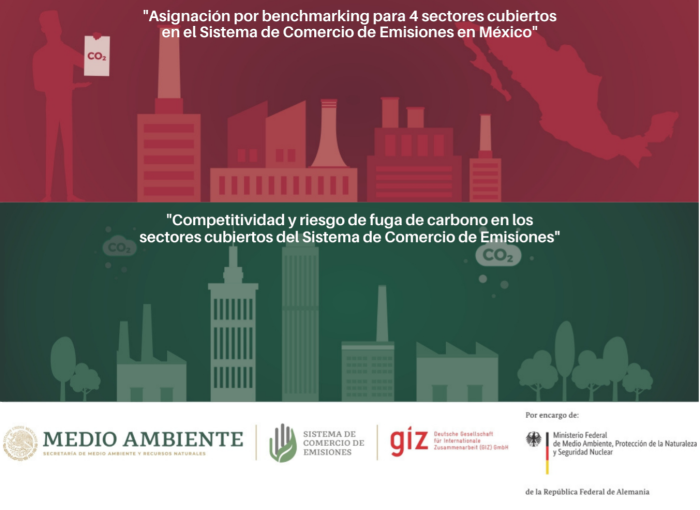On March 8th, the study “Analysis of Competitiveness and Allocation Mix for the Emissions Trading System (ETS)” was launched. This event aimed to trigger exchange and discussion between the sectors regulated by the Mexican ETS and the Ministry of Environment and Natural Resources (SEMARNAT), with the support of the Deutsche Gesellschaft für Internationale Zusammenarbeit (GIZ) GmbH, through the project Preparation of an Emissions Trading System in Mexico (SiCEM). From the launch event, five technical events emerged, seeking to generate discussion spaces in order to integrate the sectors regulated by the ETS in the development process of the aforementioned study.
The study objective is to identify the level of risk to the competitiveness of the companies regulated by the ETS, also known as the risk of carbon leakage. A carbon leak is generated when the production of a company is transferred from a jurisdiction in which a carbon price has been established to another where there are no such regulations. This effect results in actual emissions not decreasing but moving to another geographic point.
Likewise, the study intends to determine the feasibility of implementing the benchmarking method as a method of assigning emission rights for the ETS. This method consists of determining an optimal carbon intensity value that serves as a reference within a regulated sector for the allocation of its emission rights. To achieve the objectives of this study, and within the framework of this series of workshops, an invitation was extended to four industrial sectors regulated by the ETS to actively participate in the development of the study. The sectors included are: iron and steel; cement; electricity; and oil and gas.
Collaboration with a regulated sector makes it possible to generate a broader perspective of the national context, allowing the results of the study to be useful for SEMARNAT’s decision-making process regarding allocation methodologies for the future phases of the ETS. As long as the chosen measures are suitable for the national sectors, they will contribute more precisely to the efficient operation of the Mexican ETS and therefore to the achievement of the Greenhouse Gas mitigation goals that Mexico has set for itself.
The workshops were held from March 30th to April 6th, 2022 with the collaboration of a consulting team from Ricardo Energy & Environment, Carbon Trust and Öko-Institut.

